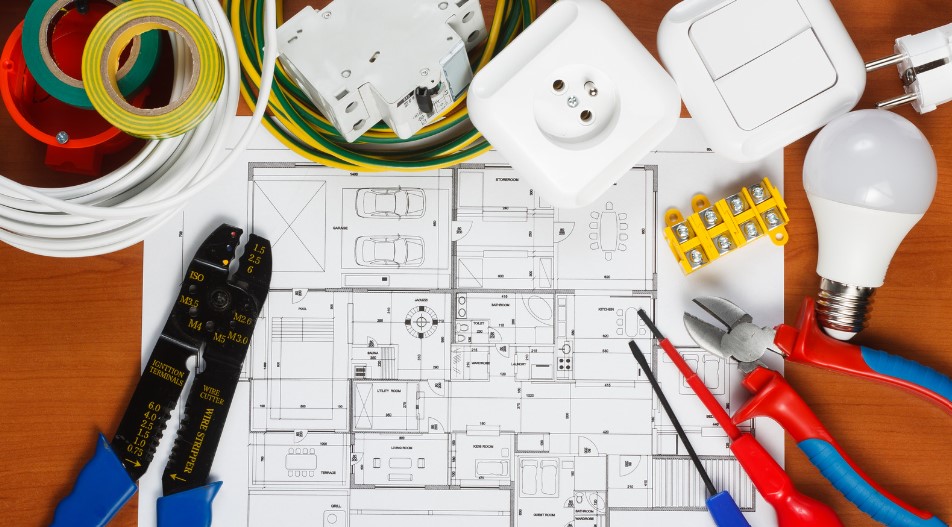If you plan on doing any electrical work involving fittings or alterations, it’s crucial to understand the requirements for getting a Minor Works Certificate. A Minor Works Certificate verifies that your electrical work meets the standard safety regulations and is legally compliant. The added benefit of obtaining a Minor Works Certificate is that it helps you avoid any legal complications and provides evidence of the work that has been carried out. In this guide, we will cover all you need to know about a Minor Works Certificate, from what it is, to the requirements to obtain one, how to get it and its benefits. Read on to ensure peace of mind and avoid any legal complications when it comes to electrical work.
What is a Minor Works Certificate?

A Minor Works Certificate is a document that an electrician issues after making any alteration to the existing circuit. This certificate serves as verification to the customer that the electrical work is safe and has been installed in compliance with legal regulations. Typical usage of this certificate is for works like adding more light fittings or additional sockets. It is a one-page document that includes elements tested by the electrician. This certificate is an essential tool for electrical companies and installers as it is proof that the electrical alterations meet the relevant safety standards.
What Are the Requirements for a Minor Works Certificate?

A Minor Works Certificate is a legal requirement if an electrician mate has made any modifications to an existing circuit. The certificate confirms that the work carried out follows the BS 7671 wiring regulations and has been designed, constructed and tested correctly. The original certificate must be handed over to the person who initiated the work, while a copy should be retained by the electrician who carried out the work.
Electricians have a checklist to ensure that all aspects of the work have been completed satisfactorily before issuing the certificate. The checklist includes the scope of work, the work’s location, the completion date, and the person responsible for the certificate. It’s essential that customers keep the certificate safe for future reference in cases such as selling the property or to prove that the electrical work was done according to the regulation.
What is a Condition for Getting a Minor Works Certificate?

For minor electrical installation work, a condition for getting a Minor Works Certificate is that a qualified electrician must carry it out. The electrician must be registered with a competent person scheme and must issue the Certificate after the appropriate inspection and testing of the installation. The Minor Works Certificate is issued only after confirming that the electrical work complied with BS 7671 requirements. Additionally, a checklist must be completed before signing off the Certificate. The inspection and testing process for minor electrical installation work ensures that the installation is safe and complies with the necessary standards.
How Do I Get a Minor Works Certificate?

Getting a Minor Works Certificate for home electrics is typically only issued once an electrician has made any necessary alterations to your existing circuits. This certificate gives homeowners an assurance that the circuit has been tested and declared safe by the electrician while making changes that the property owner requested.
The process of obtaining a Minor Works Certificate can be learned by taking an online course. Additionally, you can find more information, tips and tricks regarding minor works certificates on the ElectriciansForums.net Electrical Forum, where you can interact with experts who can answer questions related to the topic.
How Long Will It Take to Receive a Minor Works Certificate?

The completion time of a Minor Works Certificate varies depending on the complexity and nature of the work. After the electrician makes alterations to the existing circuit, they must issue the certificate to show that the alterations have been done safely and are ready to use. The electrician, therefore, must test several elements in the electrical installation, and as such, the minor works certificate is usually issued after 1-2 hours. A minor works certificate is used to certify that the work completed is safe and will pose no danger to the environment or people using it. Domestically, a minor works certificate may take the form of a single-page document.
What Are the Benefits of Getting a Minor Works Certificate?

Suppose you’re looking to make minor electrical changes to your home. In that case, a Minor Works Certificate is critical as it certifies the safety of the work carried out by your electrician.
A Minor Works Certificate is used for certifying work such as adding extra sockets, increasing the number of light fittings, or upgrading protective circuitry in more than one location.
It is essential to note that each circuit worked on requires a separate Minor Works Certificate. It’s worth noting that the certificate doesn’t cover new circuit installations, even if it’s for just one point.
The benefits of getting a Minor Works Certificate far outweigh the cost since it gives you that much-needed peace of mind. You can rest easy knowing that the minor electrical changes made are safe and comply with building regulations.
Conclusion
In conclusion, a Minor Works Certificate is essential for carrying out minor electrical work on your property. It is a legal requirement and helps ensure the safety of your property and those who inhabit it. As the process of acquiring a Minor Works Certificate can be complex, it is highly recommended to seek out a qualified electrician who can guide you through the entire process seamlessly. This ensures compliance with regulations and provides peace of mind that the work carried out is of the highest quality. Read our comprehensive guide today to learn more about how a Minor Works Certificate can benefit you.









Leave feedback about this